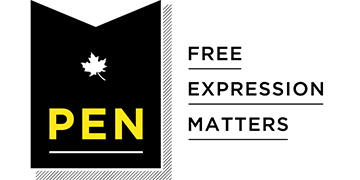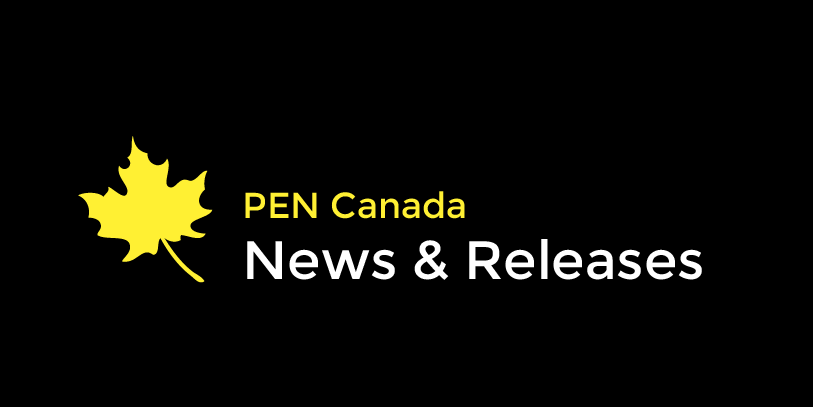Jiang Weiping discusses corruption, reform and the future of China
On November 8th the Chinese Communist Party (CCP) will open its Eighteenth National Party Congress. At the Congress, CCP leaders will select a new General Secretary for the Central Committee, and set the stage for the election of a new President and Premier in spring 2013. Last week, Jiang Weiping, journalist, dissident and PEN Canada Honorary Member spoke to OpenCanada.org about some of the challenges the new leadership will face. Before moving to Canada in 2009, Jiang reported extensively on corruption in northeast China. In 2001, after publishing a series of exposés about a local politician, Jiang was tried and convicted for “revealing state secrets”, and sentenced to eight years in prison. Bo Xilai, the politician in question, would later became Mayor of Chongqing and a Minister of Commerce. In September 2012, following his indictment on multiple counts of corruption, Bo was expelled from the CCP. In October the state news agency announced that Bo would soon face criminal proceedings for his alleged crimes. What follows are edited excerpts of the OpenCanada review.
What is your view of legal reform in China today? How might the Eighteenth Party Congress impact the scope and pace of that reform?
China lacks the legal oversight a lot of democratic countries have. […] People tend to compare the current political system to how it was during Chairman Mao’s day, and they emphasize the changes. There has been a lot of economic and political reform – particularly as a result of Deng Xiaoping’s reforms – but we’re still in the early stages of legal reform. In recent years, the CCP has done many positive things, especially the reformist faction of the party, but since there is still no press freedom, or an independent legal system, we continue to see cases like those of Bo Xilai and [former vice-mayor and head of the Public Security Bureau (PSB) of Chongqing] Wang Lijun. A lot of legal reform is still needed.
After the Wang Lijun incident, there has been a new-versus-old dichotomy inside the party. This continues in the lead-up to the Eighteenth Party Congress. The atmosphere is very tense because of these factions. One faction is reformist and advocates economic and political reform. Another is more conservative and wants to take the country backwards. The Congress deserves more attention than its received because that’s when these two factions – reformers and conservatives – will resolve what they have been fighting about.
At the Congress, there will be a struggle between members of the Shanghai Clique, the Princelings (the Maoist faction), and the Chinese Communist Youth League. How might the party’s approach to reform change if one of these groups prevail?
The Bo Xilai case has taught the reformer faction – represented by Premier Wen Jiabao – a valuable lesson, that it’s worthwhile to keep fighting corruption within the party.
On the other hand, the conservative faction is somewhat divided. Some want to protect the status quo while others actually want to go backwards to a more conservative time. Bo represented this latter group. Support for his agenda is still growing as a result of the single-party system, but a lot of people within this conservative faction now see the Tiananmen Incident as a lesson that could change their agenda.
The upcoming transition that will leave Xi Jinping as president and Li Keqiang as premier, gives me hope. Xi’s father (Xi Zhongxun) was a reformer and an ally of [former reform-oriented Chinese President] Hu Yaobang, Xi himself went through the Cultural Revolution and witnessed many of the disadvantages of Maoism. Li also lived through the Cultural Revolution and studied law at Peking University. Based on their experiences, I believe the new leadership has a lot of potential to carry out reforms.
I believe the new leadership will leave China relatively better off than we are today – especially with Li as the new premier. I knew him back when he worked in my home province of Liaoning and from what I learned there, he was a very decent and clean politician, so I have a lot of hope.
Here’s a little story about Li Keqiang. I heard that on his first working day in Liaoning, he drove his car to Xinhua News Agency, unaccompanied, because he wanted to know the truth. He’s someone who loves to know the truth. If he had been driven, or accompanied by others, they would have prevented him from talking frankly with people.
I think the future leadership is likely to have an open spirit toward reform in a number of areas. Even so, it is unlikely to reform the single-party system, so there’s still a lot of work to be done.
How different is Bo Xilai from the current reformers? Did he merely present himself as being open to reform?
In 1984, when Bo took a position in Dalian, I got to know him. We became friends. So I can tell you that his apparent openness to reform cloaks a very backward attitude. His father, Bo Yibo, was one of the main catalysts for the Tiananmen Incident. Bo Yibo was not a reformist and Bo Xilai is not one either.
In 1989, after the Tiananmen Incident, Bo was the leader of municipal propaganda in Dalian. He cracked down on a lot of journalists and students who had participated in the Tiananmen incident. Bo actively suppressed the grassroots movement.
In the early 1990’s, Bo became mayor of Dalian. Whenever he attended export exhibitions, journalists had to wait for his news conferences – because he needed time to manipulate the statistics before they were announced to the public. During his mayoral term in Dalian, his wife Gu Kailai opened a law office. She engaged in bribe-taking and all sorts of other corrupt activities. When Bo went to Chongqing, he branded more than 600 groups as criminal organizations and launched a crackdown. A lot of money was confiscated. But it didn’t go into the National Reserve, it went to the Chongqing police department, where Wang Lijun was the chief of police.
As a Chinese citizen now living in Canada, how do you think Canada and Prime Minister Stephen Harper should approach Canada’s relationship with China? How can we balance different interests in that relationship?
I’ve been in Canada more than three and a half years now, and I am very grateful to the government for letting me come here. Having observed the Canada-China relationship since my arrival, I think that the Canadian government focuses too much on trading and investment issues and not enough on protecting freedom of speech and related human rights issues. I also think Prime Minister Harper needs a better adviser on China. Right before Bo Xilai fell from power, Mr. Harper actually went to Chongqing to support him. I was very disappointed by that decision.
Bo Xilai started many conflicts that ruined Chongqing’s economy and political system. I agree that Mr. Harper should discuss trade and investment with China as this is in Canada’s interests, but he should also talk to reformers within the Chinese government, men like Wang Yang, the current Communist Party Chief in Guangdong and contender for the Politburo Standing Committee, rather than talking only with backward officials like Bo.
You mentioned Wang Yang – a leading reformer in Guangdong. Can you share your perspective on the challenges to general reform in China?
I think Wang Yang is the most hopeful politician for China today. […] I don’t know if you know about his “Wukan model” in Guangdong Province – where they actually voted for the position of party chief. Political reform should begin like this, starting from the smallest political units such as villages and counties, where the norm is that “everything belongs to the chief,” and continuing upwards. If not, the bigger reforms can’t happen. I believe Wang’s will move China further along the path to political reform. This is good direction for China to take.
Wang once told the people of Guangdong, “Don’t think your happiness came from the party – it is earned by you and you deserve it.” Wang was very critical of Bo Xilai. I have great hopes for what might happen if Wang were to end up in the Politburo’s Standing Committee.
Can China replicate the Singapore model?
Not in the near future. I think Chiang Kai-shek’s son, Chiang Ching-kuo, the former president of Taiwan, implemented a very effective model in Taiwan. I think Xi Jinping and Li Keqiang should learn from Chiang Ching-kuo, and this does not seem impossible. Xi’s father, who was jailed during the Cultural Revolution, was a big reformer. Wang Yang will also lend more power to the reform faction if he gets into the Standing Committee, but if he doesn’t, then we will continue to wait before testing a different model.
If you read recent articles published by the Communist Party of China, the Maoist model has already been abandoned, in a way. They only praise the thinking of Deng Xiaoping, Jiang Zemin and Hu Jintao – Mao Zedong is not mentioned anymore.
It’s still too early to decide what the outcome of the Congress will be, but I hope to use my time to push for reform. I think the path to reform is still very long. First, I think we should try to make China more like it was during the Hu Yaobang era. That was a better time than the present. Hu son, Hu Deping, recently had a conversation with Xi. They talked about how he would like to rehabilitate his father, Hu Yaobang, and the Tiananmen Incident, which is a promising sign. But as I said, the outcome of reform in China, and of the Eighteenth Party Congress, remains unclear.
This interview was first published on OpenCanada.org.
Photo credit: Bo Xilai – cina.quotidiano.net; Wang Yang – chinadailymail.com




